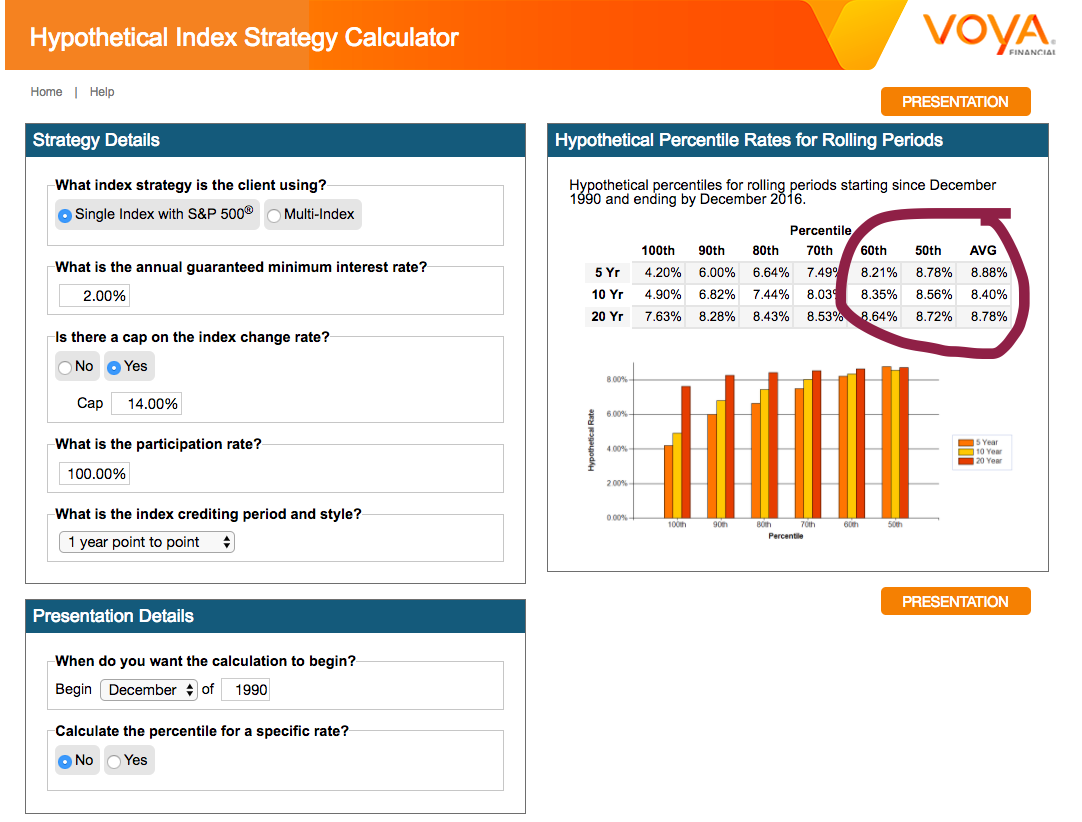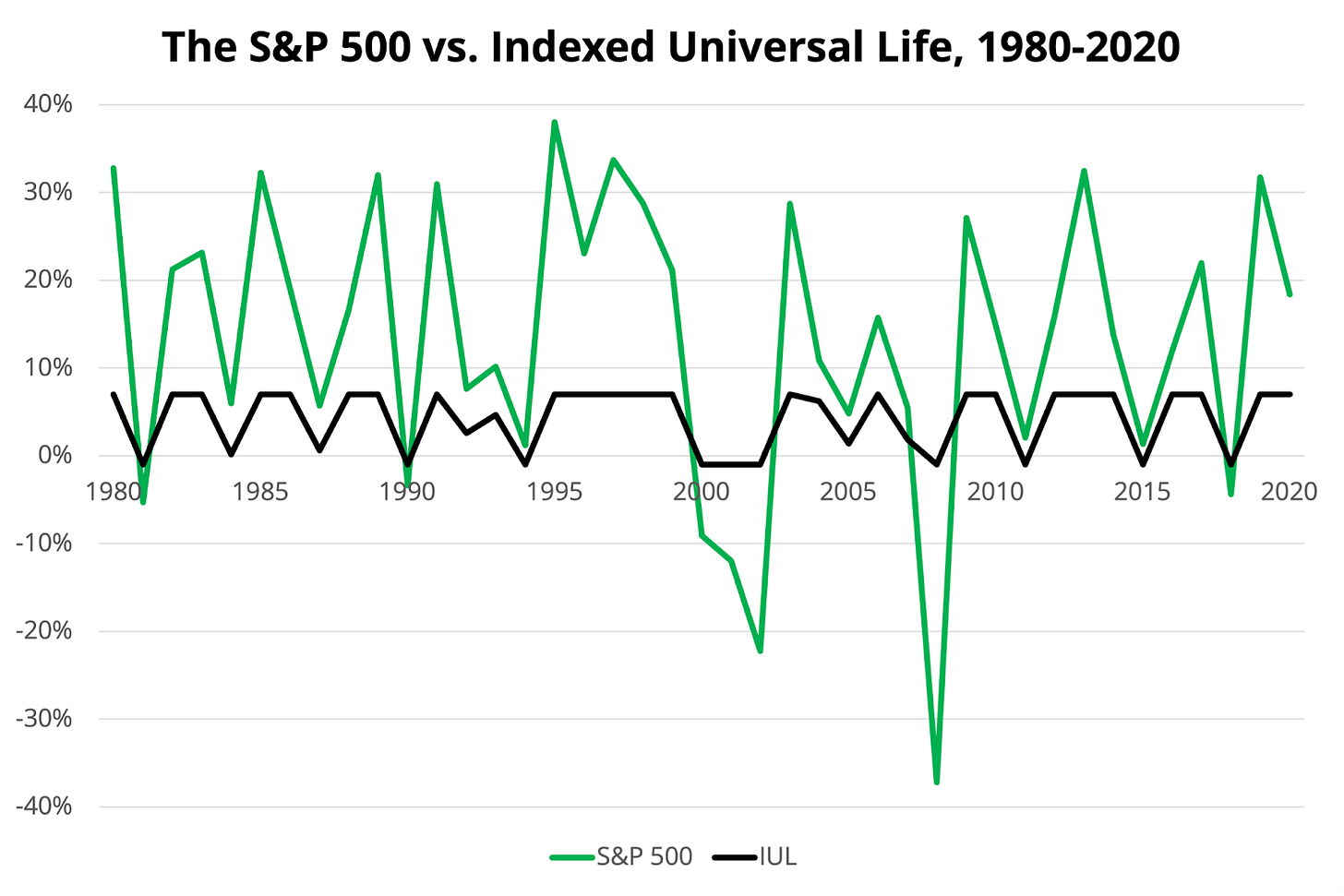All Categories
Featured
Table of Contents
1), frequently in an effort to defeat their classification standards. This is a straw male disagreement, and one IUL people like to make. Do they contrast the IUL to something like the Lead Overall Stock Exchange Fund Admiral Show no lots, an expense proportion (ER) of 5 basis points, a turnover ratio of 4.3%, and an extraordinary tax-efficient document of distributions? No, they compare it to some horrible proactively taken care of fund with an 8% lots, a 2% ER, an 80% turn over proportion, and a dreadful record of short-term resources gain distributions.
Mutual funds usually make annual taxed distributions to fund owners, also when the worth of their fund has decreased in value. Shared funds not just call for earnings coverage (and the resulting annual taxes) when the shared fund is going up in worth, but can additionally impose revenue tax obligations in a year when the fund has dropped in value.
That's not how shared funds work. You can tax-manage the fund, gathering losses and gains in order to decrease taxable distributions to the capitalists, yet that isn't somehow going to alter the reported return of the fund. Only Bernie Madoff types can do that. IULs stay clear of myriad tax obligation catches. The ownership of mutual funds might need the mutual fund owner to pay approximated taxes.

IULs are very easy to position to ensure that, at the proprietor's death, the recipient is not subject to either income or inheritance tax. The very same tax reduction strategies do not function nearly also with shared funds. There are countless, often costly, tax obligation catches related to the timed buying and marketing of common fund shares, catches that do not put on indexed life insurance policy.
Chances aren't extremely high that you're going to undergo the AMT because of your shared fund circulations if you aren't without them. The remainder of this one is half-truths at finest. While it is true that there is no earnings tax obligation due to your successors when they acquire the earnings of your IUL policy, it is likewise true that there is no revenue tax obligation due to your successors when they acquire a common fund in a taxable account from you.
Minnesota Life Iul
The government inheritance tax exemption limitation is over $10 Million for a pair, and growing every year with rising cost of living. It's a non-issue for the vast bulk of medical professionals, a lot less the remainder of America. There are far better means to stay clear of inheritance tax concerns than buying investments with low returns. Mutual funds might cause earnings tax of Social Protection advantages.

The development within the IUL is tax-deferred and might be taken as free of tax earnings via lendings. The plan owner (vs. the shared fund manager) is in control of his or her reportable earnings, therefore allowing them to decrease or even remove the tax of their Social Safety benefits. This is great.
Here's another very little problem. It holds true if you acquire a common fund for say $10 per share right before the circulation date, and it distributes a $0.50 distribution, you are after that mosting likely to owe taxes (most likely 7-10 cents per share) in spite of the fact that you haven't yet had any type of gains.
In the end, it's really regarding the after-tax return, not just how much you pay in tax obligations. You are going to pay more in tax obligations by utilizing a taxed account than if you get life insurance. However you're likewise possibly going to have more money after paying those tax obligations. The record-keeping requirements for possessing shared funds are significantly more complex.
With an IUL, one's records are maintained by the insurer, duplicates of annual statements are mailed to the proprietor, and distributions (if any) are completed and reported at year end. This set is likewise kind of silly. Obviously you need to maintain your tax documents in instance of an audit.
Principal Group Universal Life
Barely a reason to acquire life insurance coverage. Shared funds are generally part of a decedent's probated estate.
Furthermore, they undergo the hold-ups and costs of probate. The profits of the IUL plan, on the other hand, is always a non-probate circulation that passes outside of probate directly to one's called recipients, and is for that reason not subject to one's posthumous lenders, unwanted public disclosure, or similar hold-ups and expenses.
Medicaid incompetency and life time revenue. An IUL can supply their owners with a stream of income for their whole lifetime, regardless of how lengthy they live.

This is helpful when arranging one's affairs, and converting assets to income before an assisted living facility confinement. Shared funds can not be converted in a similar way, and are almost constantly taken into consideration countable Medicaid properties. This is an additional silly one promoting that poor individuals (you recognize, the ones who need Medicaid, a federal government program for the poor, to spend for their assisted living home) need to make use of IUL rather than common funds.
Can You Cash Out A Universal Life Insurance Policy
And life insurance coverage looks horrible when compared fairly versus a pension. Second, individuals who have money to purchase IUL above and past their pension are going to have to be awful at handling money in order to ever before receive Medicaid to pay for their assisted living facility costs.
Chronic and terminal disease rider. All policies will allow an owner's easy access to cash from their policy, frequently waiving any type of abandonment charges when such individuals suffer a serious disease, require at-home treatment, or end up being restricted to an assisted living facility. Mutual funds do not provide a comparable waiver when contingent deferred sales costs still put on a shared fund account whose proprietor needs to offer some shares to money the expenses of such a remain.
Iul Benefits
You obtain to pay more for that benefit (biker) with an insurance coverage policy. What an excellent deal! Indexed universal life insurance coverage offers fatality advantages to the beneficiaries of the IUL proprietors, and neither the proprietor neither the beneficiary can ever shed money as a result of a down market. Mutual funds give no such assurances or survivor benefit of any kind.
Now, ask on your own, do you really require or want a fatality benefit? I certainly do not require one after I get to monetary independence. Do I want one? I mean if it were affordable sufficient. Naturally, it isn't inexpensive. Typically, a purchaser of life insurance policy pays for truth cost of the life insurance benefit, plus the costs of the policy, plus the earnings of the insurer.
Universal Life Cost Of Insurance
I'm not completely sure why Mr. Morais threw in the entire "you can not shed money" once more here as it was covered quite well in # 1. He simply wanted to duplicate the very best selling factor for these things I expect. Once more, you don't shed nominal dollars, but you can lose actual bucks, in addition to face serious possibility expense as a result of reduced returns.

An indexed global life insurance policy plan owner might trade their plan for a completely different policy without causing revenue tax obligations. A shared fund proprietor can not move funds from one shared fund company to an additional without offering his shares at the former (thus setting off a taxable event), and redeeming new shares at the latter, commonly based on sales costs at both.
While it is true that you can trade one insurance plan for one more, the factor that individuals do this is that the first one is such a terrible plan that also after buying a new one and undergoing the very early, negative return years, you'll still come out in advance. If they were marketed the appropriate plan the very first time, they shouldn't have any wish to ever exchange it and undergo the very early, unfavorable return years once again.
Latest Posts
Universal Life Brokers
Single Premium Indexed Universal Life
Universal Life Policy Calculator